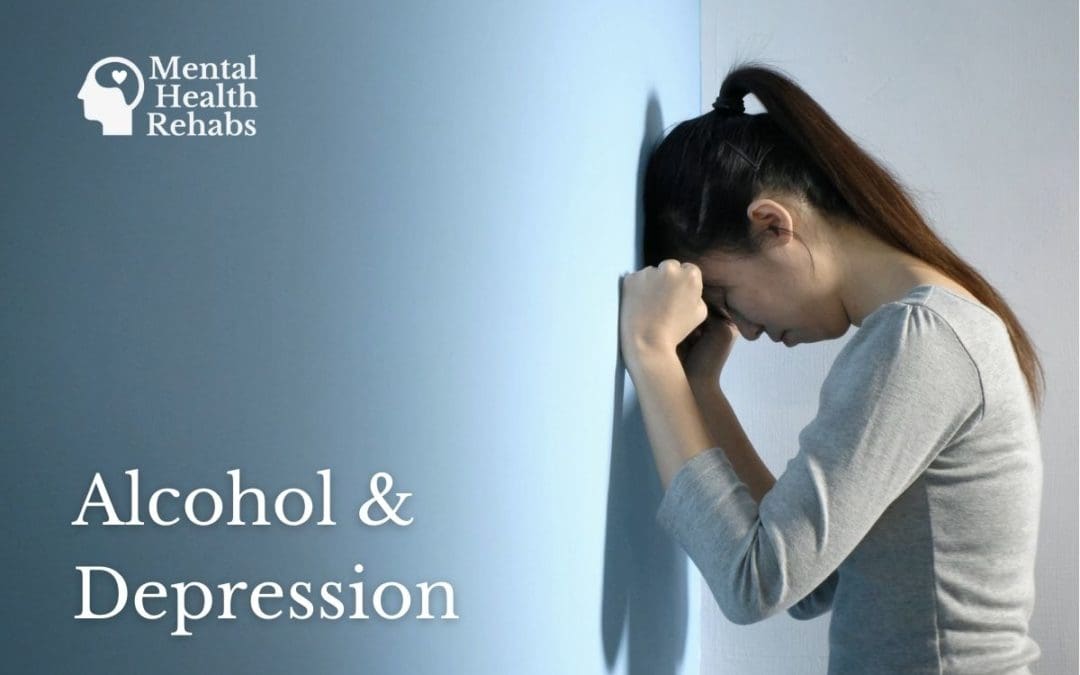Movies, television shows, and pop culture as a whole have perpetuated–even glamorized–the idea of drinking as a coping mechanism for negative emotions like stress, grief, anger, or sadness. Not only is this a very unhealthy way to deal with these feelings, but attempting to drink away your problems is very likely to backfire. Does alcohol make depression worse? Big time. Drinking can make you feel even crappier in the long term since it can actually cause depression) or exacerbate existing depression symptoms. Talk about taking a situation from bad to worse.
What Happens When You Drink Alcohol?
If you’re like the 60% of Americans who drink alcohol, you probably associate the beverage with fun and good times. The thought that alcohol could make you clinically depressed seems outlandish. However, alcohol is a drug with depressant effects that slows down or stops completely the body’s internal communication system. Its dark potential becomes clear when you look at how alcohol affects the body and brain.
Alcohol is absorbed the second it enters your mouth even before you swallow (once you swallow, alcohol continues to be absorbed along the blood vessels in your esophagus and down into your stomach where another 20% gets absorbed and the remaining majority is absorbed in the small intestine). From there, alcohol quickly enters the bloodstream causing the blood vessels to widen for increased blood flow. This is responsible for the redness and flushing that occurs with drinking, as well as an artificial feeling of warmth.
Once this happens, the alcohol coursing in the bloodstream quickly makes its way to the brain. There, alcohol quickly exerts its effects on several neurotransmitters, primarily by increasing or decreasing their levels in the brain. It is here that we unlock the key way in which alcohol makes depression worse.
There are four primary neurotransmitters and neurotransmitter pathways:
- Glutamate
- GABA (gamma aminobutyric acid)
- Dopamine
- Serotonin
The interference of these highly important (and highly sensitive) neurotransmitters is why alcohol intoxication results in cognitive impairments affecting speech, memory, coordination, judgment and decision making; as well as physical side effects. Alcohol will continue causing sedating effects on the brain until the alcohol in the bloodstream is eventually removed as it’s processed and broken down by the liver which can take hours depending on the quantity of alcohol consumed.
How Does Alcohol Make Depression Worse?
Depression is a mood disorder causing seemingly inexplicable anxiety, sadness, or emptiness that can last for weeks or months on end. It is one of the most common types of mental illnesses, affecting over 16 million Americans, as well as the leading cause of disability among 15-44-year-olds. Although the precise cause is still not known by scientists, the cause of depression has been associated with low levels of two key neurotransmitters: serotonin and dopamine.
Sound familiar? Both serotonin and dopamine were two of the four key neurotransmitters affected by alcohol consumption. Recall that alcohol exerts a depressant effect on the brain, decreasing dopamine function suppressing serotonin function. This overlap of those two key neurotransmitters that are affected by both is precisely why alcohol makes depression worse. Binge or heavy drinking increases these risks exponentially.
Individuals who are diagnosed with depression or have a genetic predisposition for depression should be particularly wary of their alcohol consumption. However, even those who have no family history of this mood disorder can cause depression and illness with frequent heavy drinking.
Mental and emotional effects of alcohol
Alcohol can cause or worsen mental illness as a whole because of its effects on the central nervous system, namely, our stress response. Alcohol inhibits norepinephrine, which is what resets the body when the fight-or-flight instinct is activated. When cortisol continues to flood the body for longer than it should, the body eventually adjusts to it in a process known as allostasis. As a result, the individuals have a lowered tolerance for stress and become stressed out much more easily. Over time, persistent stress can cause long-term changes in the brain that set the stage for mental illness.
An example of this is post-traumatic stress disorder (PTSD). Patients of such stress-related illnesses have been found to have more white matter in the brain than is normal, the type of brain matter that acts as a network of fibers and connects these brain cells to one another. Excess white matter means greater connectivity between neurons and can make the brain extra sensitive to external stimuli. Unfortunately, it’s a tough cycle to break as stress begets the development of more white matter and continues to disrupt the brain’s timing and ability to communicate with itself.
So you may want to think twice about reaching for that bottle. If you struggle with depression or any other mental illness, talk to a mental health professional today.

